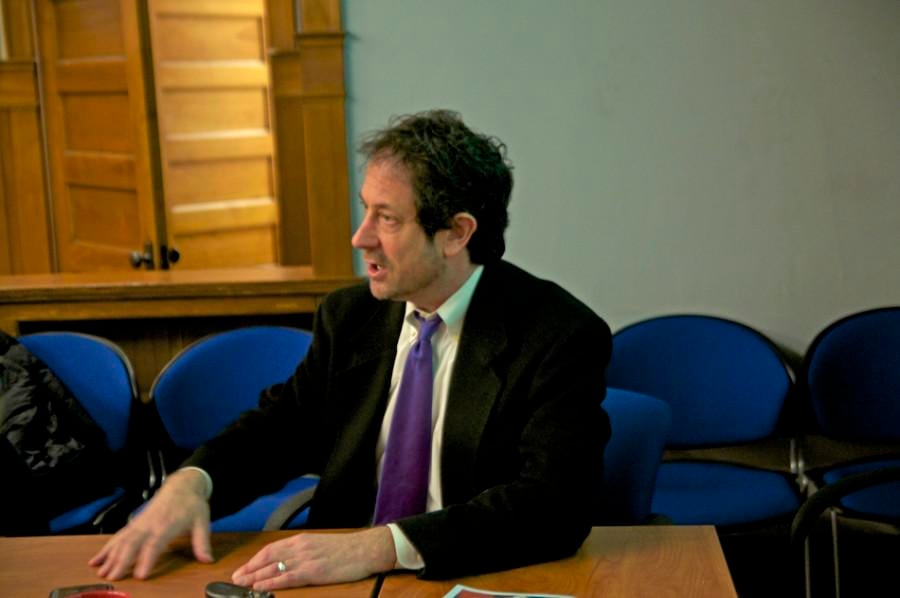Buffet Center hosts talk on flaws of U.S. food aid system
Sophie Mann/The Daily Northwestern
Medill Prof. Josh Meyer speaks about U.S. food aid programs. Meyer, who published an article in USA Today about U.S. food programs, argued that many of today’s programs are ineffective.
February 13, 2015
A Medill School of Journalism, Media, Integrated Marketing Communications faculty member spoke on the failings of the U.S. food aid program Thursday night at The Roberta Buffett Center.
Josh Meyer, lecturer and director of education and outreach of the Medill National Security Journalism Initiative, presented the ongoing problems with the U.S. aid program. He spoke on how millions of lives are left short-handed in supplies, often suffering from decade-long cycles of food and water scarcity.
“Everyone knows that the system is as broken as it is,” Meyer said.
The scope of U.S. global food aid depends largely on its domestic self-interest, Meyer said, explaining Congress has denied many proposals to change the system, knowing very well that “the system remains dysfunctional.”
Meyer said instead of speeding up shipments, improving food quality and cutting down on taxpayer dollars, the U.S. aid program continues to benefit from the domestic iron triangle, a relationship among interest groups that prioritizes industrial development, shipping and food industries.
“Things overseas have repercussions over here,” Meyer said.
He said there is a huge disconnect domestically on what truly happens with the food being shipped overseas to countries in need.
“I don’t think the farmers really know where their food is going,” Meyer said
He said food generally takes about seven months to ship and, even if it gets to its destination, the food may have rotted or it may be too late for it to be of any help. He added that U.S. aid workers are frustrated because they know there is “institutional dysfunctionality.”
The system has not changed due to the 13,000 jobs that could be lost in the shipping industry if a less costly and more efficient form of transportation were adapted, Meyer said.
“We’ve been locked into a cycle where we just give people emergency food,” Meyer said.
He said food insecurity causes conflicts and social unrest and that the U.S National Intelligence Council predicts an apocalyptic scenario in the future where people will desperately fight for food.
“The future is cloudy for food aid reform and food aid,” Meyer said.
Medill sophomore Sofia Rada, a fellow at the Buffett Center who attended the talk, said she believes the U.S. food aid program dropping off food is a “Band-Aid” that does not get to the root of the problem.
“I get really frustrated with the development industry,” she said.
However, Meyer said the system can be changed if people get informed, advocate and vote.
Email: [email protected]
Twitter: @ritaoceguera


